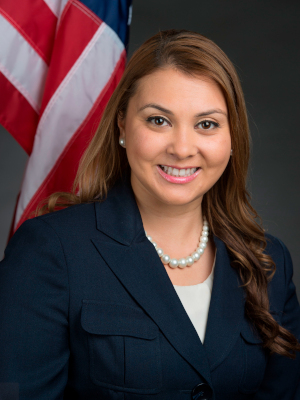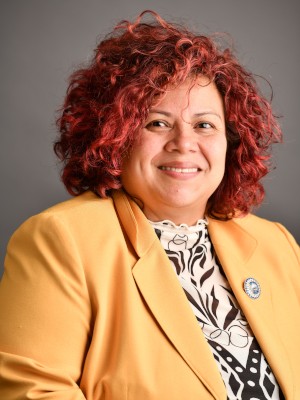2023-07
EMERGENCY RESOLUTION:
Support Affordable Healthcare and Medicaid for Dreamers
Sponsored by Sen. Sandra Cano (RI) and Rep. María Pérez (NH)
Reported to the Caucus by the NHCSL Healthcare Task Force
Rep. Alma Hernández (AZ), Chair
Unanimously approved by the NHCSL Executive Committee on behalf of the entire Caucus on April 22, 2023
WHEREAS, currently, despite the fact that they pay taxes at least at the same rates as other Americans, “individuals with DACA have limited options for health insurance coverage if they do not have access to employer-sponsored insurance since they remain ineligible for many federal programs, including health coverage through Medicaid, the Children’s Health Insurance Program, and the Affordable Care Act (ACA) health insurance Marketplaces;”[1] and,
WHEREAS, President Biden has announced that the Department of Health and Human Services will propose a rule expanding health coverage under the Affordable Care Act (ACA) and Medicaid to Dreamers enrolled in the Deferred Action for Childhood Arrivals (DACA) program on an equal footing as other Americans;[2] and,
WHEREAS, in Resolution 2018-08, End the Uncertainty and Create a Pathway to Citizenship for Dreamers Now, this Caucus reiterated “its repeatedly stated principle that Dreamers are American and deserve a pathway to citizenship,” and President Biden based his proposed rule on that principle;[3] and,
WHEREAS, President Biden also committed to continue working with Congress to create a pathway to citizenship for Dreamers;[4] and,
WHEREAS, President Biden emphasized that many Dreamers were essential workers during the Covid-19 pandemic and, in Resolution 2020-01, Grant residency and a path to citizenship to COVID-19 farmworkers and other essential pandemic workers, this Caucus recognized the heightened risk of sickness and death faced by those essential workers and their families and thus called for granting them the right of residency and naturalization without regard to previous immigration status; and,
WHEREAS, experts estimate that Hispanic children face the greatest barriers to maintaining health coverage[5] and this may be at least partially due to the “chilling effects of the 2019 [public charge] rule that led many immigrant families, including citizen children in these families, to not seek assistance including health coverage and care, for which they were eligible” because the rule had newly considered the use of noncash assistance programs, including Medicaid, in public charge immigration determinations;[6] and,
WHEREAS, in fact, a “2021 KFF survey of Hispanic adults found that 1 in 4 potentially undocumented Hispanic adults and over 1 in 10 lawful permanent resident Hispanic adults reported that they or a family member did not participate in a government assistance program in the past three years due to immigration-related fears;”[7] and,
WHEREAS, even though a new public charge rule whose primary aim was to remove the chilling effect “was published on September 9, 2022 and went into effect on December 23, 2022, but families may continue to avoid participating in assistance programs due to fears of potential negative consequences on their or a family member’s immigration status;”[8] and,
WHEREAS, the new rule announced by President Biden, which will grant all DACA enrollees access to Medicaid or the Affordable Healthcare Act marketplaces, may help further assuage the fears created by the 2019 rule that kept many eligible Hispanic Americans from receiving the health coverage they are entitled to; and,
WHEREAS, the Covid-19 pandemic underscored the importance to the health of all Americans of healthcare coverage for all US residents.
THEREFORE, BE IT RESOLVED, that the National Hispanic Caucus of State Legislators supports the proposed rule granting Dreamers enrolled in DACA access to Medicaid and Affordable Care Act health insurance marketplaces on an equal footing as other Americans.
AT THE REQUEST OF THE HEALTHCARE TASK FORCE, AND IN ACCORDANCE WITH THE IMMEDIATE NEEDS PROCEES OUTLINED IN THE BYLAWS, THE EXECUTIVE COMMITTEE UNANIMOUSLY APPROVED THIS RESOLUTION ON APRIL 22, 2023, AT ITS MEETING IN SAN JUAN, PUERTO RICO.
[1] Drishti Pillai and Samantha Artiga, 2023 Update on Key Federal Immigration Policies and Implications for Health. (KFF, Jan. 30, 2023). Available at https://www.kff.org/racial-equity-and-health-policy/issue-brief/2023-update-on-key-federal-immigration-policies-and-implications-for-health/
[2] White House Official Twitter. https://twitter.com/WhiteHouse/status/1646516665549717504
[3] Ibid.
[4] Ibid.
[5] Elizabeth Williams, et al, Implications of Continuous Eligibility Policies for Children’s Medicaid Enrollment Churn. (Dec. 21, 2022, KFF). Available at https://www.kff.org/medicaid/issue-brief/implications-of-continuous-eligibility-policies-for-childrens-medicaid-enrollment-churn/
[6] Drishti Pillai and Samantha Artiga, 2023 Update on Key Federal Immigration Policies and Implications for Health. (KFF, Jan. 30, 2023). Available at https://www.kff.org/racial-equity-and-health-policy/issue-brief/2023-update-on-key-federal-immigration-policies-and-implications-for-health/
[7] Ibid., citing Liz Hamel, et al, KFF COVID-19 Vaccine Monitor: COVID-19 Vaccine Access, Information, and Experiences Among Hispanic Adults in the U.S. (KFF, May 13, 2021). Available at https://www.kff.org/coronavirus-covid-19/poll-finding/kff-covid-19-vaccine-monitor-access-information-experiences-hispanic-adults/
[8] Ibid.



